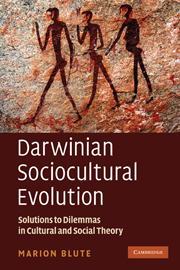Archive for April 2014
At Harvard: Remembering Lewis Feuer
I gave a lecture on “The evolutionary approach to history: sociocultural phylogenetics” to a workshop held weekly on History, Culture and Society organized by sociologist Orlando Patterson and historian Daniel Smail at Harvard last week. Speaking in a building named after William James reminded me of Lewis Feuer who did his PhD there under another great Harvard philosopher, Alfred North Whitehead. Lewis Feuer was the supervisor under which I began my PhD dissertation although he left for the University of Virginia before it was completed. So I thought I would post here my reminiscences of him that first appeared in our Sociology department’s newsletter in the fall of 2003, the year after he died at age 89.
“Many of us were saddened last year when we learned of the death of Lewis Feuer at the age of 89. He was a professor of sociology and taught theory and the sociology of science here from 1966 to 1976. An obituary summarizing his career was published in the New York Times on Nov. 30, 2002 and he previously published an autobiographical essay in Philosophy, History and Social Action so I will confine these remarks to some personal reminiscences. Lewis Feuer’s view of sociology was that it concerned the functioning of a universal human nature, one best understood by Freud and his heirs, under different social and historical conditions. If we were to substitute Darwin for Freud, this view would approximate that of contemporary sociobiologists (which he flirted with at one point). In addition to his numerous papers and books on philosophy, sociological theory, and the sociology of science, he is often remembered as one of a network of intellectuals loosely surrounding Commentary magazine which provided the intellectual foundations for the “new right ”in American politics.
The reality however was considerably more complex. Having been a Marxist in his youth, he had a love-hate relationship with radical students. He was fond of quoting Churchill to the effect (I paraphrase), “If you are not a socialist when young you have no heart, and if you are still a socialist when old you have no head.” In fact, with an academic wife, a daughter, and as an admirer of John Stewart Mill (whose Logic of the Moral Sciences he thought the best work on sociological methodology), he believed strongly in the equality of women. He always went out of his way to encourage women students, as well as those few third world students who found their way to the University of Toronto in those days. At the same time, he was prophetic in his deep conviction that the Soviet Union was an evil empire which would some day fall. He also believed that in our admiration of Mao, Fidel, Che, Fanon and so on, we were repeating the follies of his generation in their youth with respect to the Soviet Union. Of course, we thought that the experience of old fogies like him in talking about the forced collectivization of peasants or Stalin’s show trials was irrelevant to us and for our times. These debates were usually carried on with a twinkle in his eye but he had a temper too. We will never forget the day when a minor shoving match with one of our more radical graduate students ended up with the student falling through the glass door of the library. He was extremely proud that it was the student and not he that went through the door! What today would undoubtedly result in endless legalistic proceedings was probably resolved in those days by the chair telling Lewis to smarten up and the director of graduate studies telling the student to smarten up!
What I most remember was his scholarliness, his gratitude and his generosity. He loved the quality and depth of our library almost as much as the New York city library of his youth. Browsing in the stacks with Lewis was a learning experience. Instead of the newest shiniest book, he always reached for the oldest, dustiest volume that had been pushed to the back – seeking (and sometimes finding) some long-lost gem. A footnote to his career of which he was very proud was some detective work that led him to infer that at least one of the supposed letters from Marx to Darwin was actually written by Marx’s son-in-law, an inference that was later verified.
He always remembered kind treatment with gratitude. He was particularly grateful to the University of Vermont for having employed him in a time in which his political background may have made him unemployable elsewhere. In fact, his whole personality very much resembled the stubborn independence that we associate with Vermont’s political culture.
In addition to being my thesis supervisor until his move to Virginia, I worked for him as a research assistant one year. He pointed me to a data set on the scientific productivity of various nations. I figured out how to do the statistical analysis, including asking some questions that went beyond his initial one, did the analysis, and wrote the first draft of the paper. Despite the fact that he supplied the original data set and paid to have the work done, he generously insisted that I submit it to the American Sociological Review under my own name with just a footnote thanking him. His genuine pleasure when it was accepted could not have been greater if it had been his name on the paper.”

